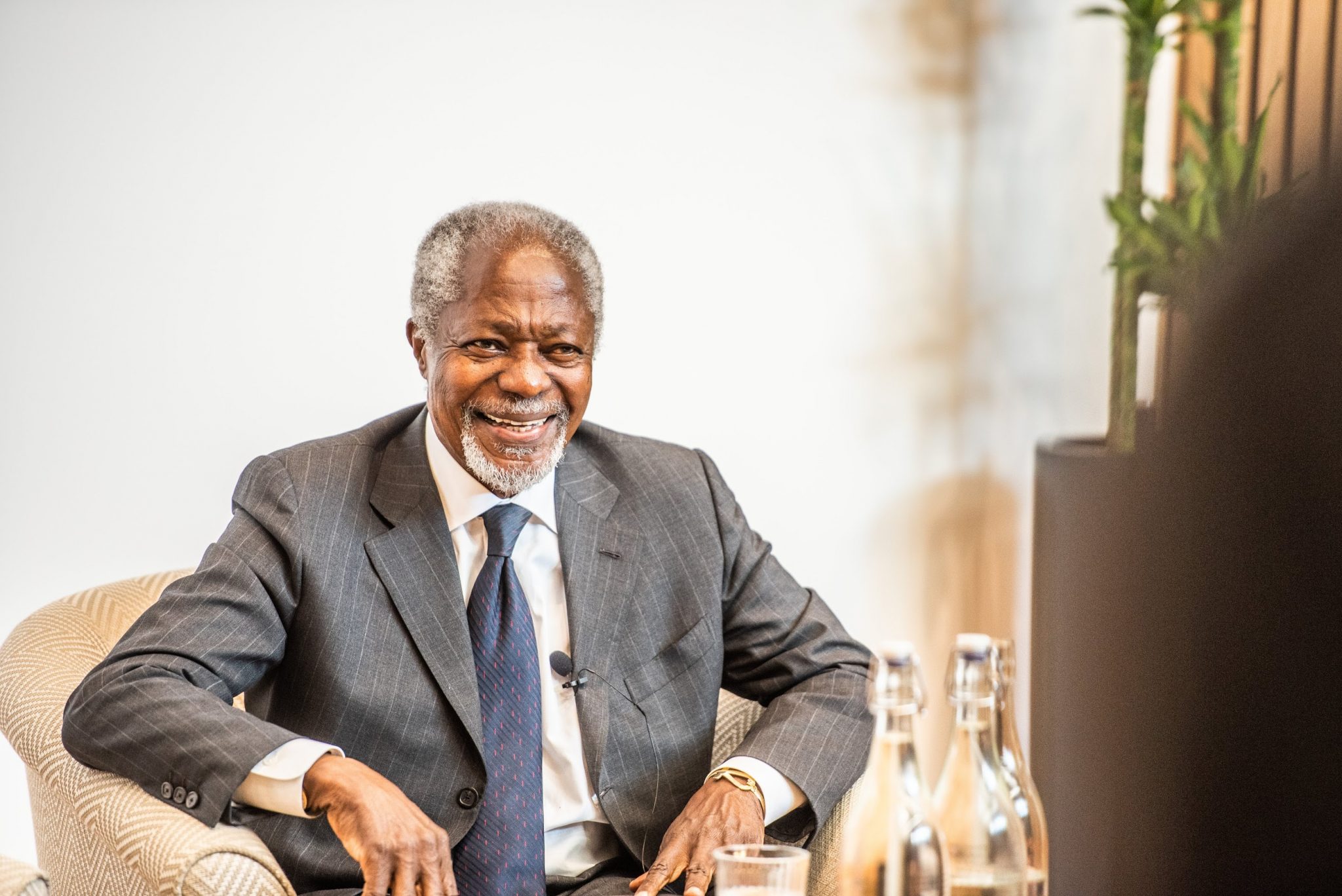Perspectives: Kofi Annan
The growing commercial involvement of Asian countries in Africa has been a truly remarkable phenomenon in recent years. It is an engagement which is bringing real benefits, but not without controversy.
Stronger links between Africa and Asia create economic growth opportunities for both. Fresh investment helps economies to diversify, to upgrade essential infrastructure, and to generate jobs, including in the construction, manufacturing and mining sectors. Consumers, including the poor, can access cheaper goods and services.
But alongside these benefits, there are many areas of concern. Increased trade and investment does not necessarily result in poverty reduction; too often, it only benefits elites. Revenues, in particular from the extraction of natural resources, are not being translated into more or better public goods and services, social protection or stronger systems of accountability. The lack of transparency of many deals has helped undermine political accountability and can fuel corruption and instability.
These problems pre-existed the surge in Asian interest in Africa, but might be exacerbated by them, not least as many Asian investors advertise their policies of ‘non interference’ in domestic African politics. Some argue that this “non interference” sounds good, but in fact it can facilitate irresponsible business practices, unless accompanied by high ethical standards on the part of investors.
Asia’s growing interest in African agricultural potential has led to concerns about the phenomenon of ‘land-grabbing’. It has pushed the FAO, the World Bank, UNCTAD and African governments to formulate a new code of conduct for land purchases which should lead to an international protocol later this year.
The challenge for African countries is to address these concerns at the same time as deepening their relationship with Asia. In the meantime, Africa can learn from some of Asia’s successes over the last few decades. While there are still hundreds of millions of very poor people in Asia, economic growth has helped lift many more hundreds of millions out of poverty, enhanced Asia’s global economic status and also its leadership on critical global issues.
The contrast with Africa could not be starker. Four decades ago, the per capita income of South Korea was roughly the same as Sudan’s. Today South Korea is one of the richest countries in the world, Sudan one of the poorest. This particular comparison, alas, is by no means unique.
There is no single model for Asian development – or Africa’s, for that matter. But there are broad lessons that African countries might learn from Asia’s success. One is the crucial importance of a high level political commitment to national development. Governments across Asia have based their legitimacy on their record of economic growth and unrelenting focus on social welfare and poverty reduction.
In contrast, too many governments in Africa, no matter by what means they came to power, behave as if their citizens’ welfare is peripheral to their purpose, and certainly not the basis of their legitimacy. Not uncommon is the spectacle of government by and for ruling elites, rather than for society as a whole, let alone for those most in need. Consequences include the privatization of national wealth, siphoning off of revenues by a few, corruption, abuse of power and growing inequality.
African policy-makers can emulate the way their Asian counterparts have implemented comprehensive but also practical state-led plans to address their countries’ challenges, to manage foreign direct investment in line with national objectives and to harness human and natural resource potential.
Many Asian governments, for example, have invested in a green revolution that has enabled them to feed their citizens and achieve food security. More African leaders could spearhead their own continent’s transformation of agricultural productivity.
African governments must take the lead in meeting these challenges. But their new partners in Asia can do more to help in a number of ways. They can respond to requests for support for technical and management capacity building in government institutions; by sharing best practice and experiences in areas central to Africa’s social development, including agriculture, health, low carbon energy generation and communication; and by modelling or encouraging greater transparency.
There can be a fresh look too at the barriers against African exports. Asia has been reaping benefits from its relationship with Africa, including greater market access, for years. It now has a responsibility to help Africa along the path of development it has cleared.
South-South political solidarity can complement economic cooperation, and thereby reinforce global development efforts. Given its own recent history in promoting growth, reducing poverty and advancing the Millennium Development Goals, Asia can champion the needs of the world’s least developed countries and help mobilize political, technical and financial support for LDCs to achieve the MDGs and manage climate change.
There is no doubt that Asia’s growing economic and political power can help Africa overcome many of the blockages that have constrained its development for decades. This requires African governments being clear on the support they want, and Asian governments being willing to respond. Asia has the means and a vested interest in doing so. A prosperous and stable Africa will provide new opportunities that will enrich and benefit the people of both continents.



